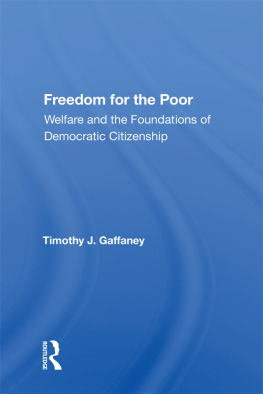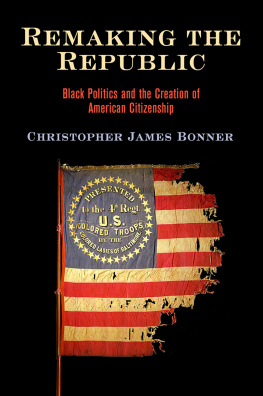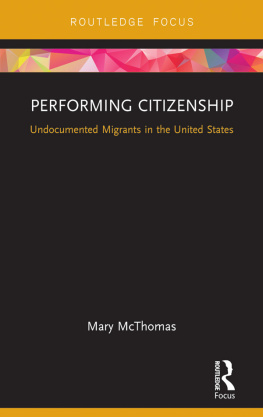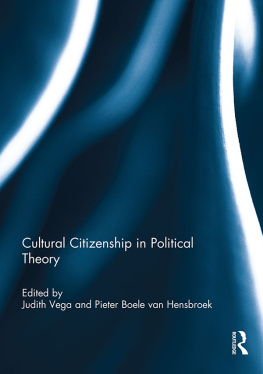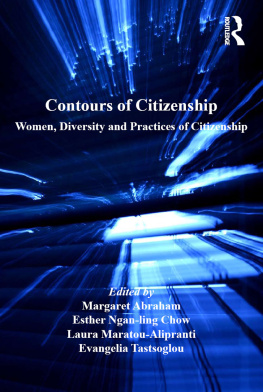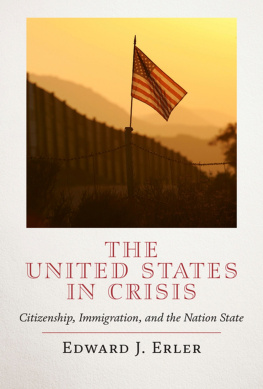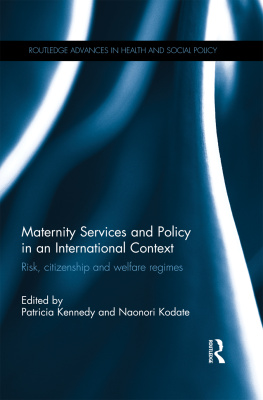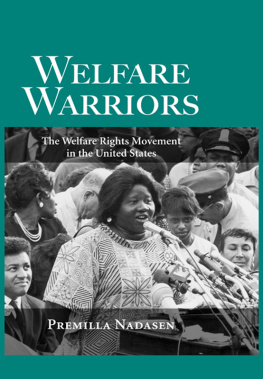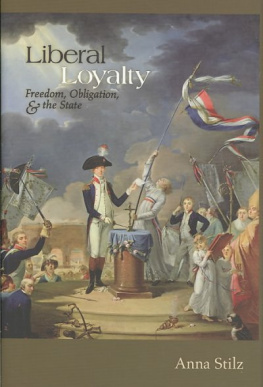Freedom for the Poor
Freedom for the Poor
Welfare and the Foundations of Democratic Citizenship
Timothy J. Gaffaney
For Josette
First published 2000 by Westview Press
Published 2018 by Routledge
52 Vanderbilt Avenue, New York, NY 10017
2 Park Square, Milton Park, Abingdon, Oxon OX14 4RN
Routledge is an imprint of the Taylor & Francis Group, an informa business
Copyright 2000 Taylor & Francis
All rights reserved. No part of this book may be reprinted or reproduced or utilised in any form or by any electronic, mechanical, or other means, now known or hereafter invented, including photocopying and recording, or in any information storage or retrieval system, without permission in writing from the publishers.
Notice:
Product or corporate names may be trademarks or registered trademarks, and are used only for identification and explanation without intent to infringe.
Library of Congress Cataloging-in-Publication Data
Gaffaney, Timothy J.
Freedom for the poor: welfare and the foundations of democratic citizenship / Timothy
J. Gaffaney.
p. cm.
Includes biliographical references and index.
ISBN 0-8133-6781-6
1. Public welfareUnited States. 2. ConservatismUnited States. 3. Liberalism
United States. 4. Citizenship. 5. Equality. 6. Liberty. I. Title.
HV95.G32 2000
362.50973dc21
99-059999
ISBN 13: 978-0-367-00810-9 (hbk)
The ideas expressed in this book originally took form as a dissertation under the direction of Professor Carole Pateman at UCLA. Her prodding and patience with me as I struggled to clarify my thoughts were truly heroic. For that, as well as her encouragement since leaving Los Angeles, I am truly grateful and indebted. At UCLA, I also benefited from the invaluable constructive criticism of Professor Victor Wolfenstein of the Political Science Department and Professor Barbara Herman of the Philosophy Department. I am also grateful to my fellow graduate students and friends, John Medearis, Bill Niemi, and Dan O'Connor, for their insights on political theory, their wit, and their sarcasm. Another friend, Mike Murashige, was also a source of both inspiration and endless suggestions for reading. Finally, from UCLA, I wish to acknowledge the powerful intellectual influence of the late Professor Richard Ashcraft, who showed me that the project is never really finished.
Since coming to Washington, D.C., I have had the opportunity to discuss my ideas, in part or in whole, with a number of talented and friendly political scientists, among them, Stephen Elkin at the University of Maryland, Mark Warren at Georgetown University, Ingrid Creppell at George Washington University, and Joe Soss at American University Whether they will recognize it or not, this book clearly bears the marks of their helpful suggestions.
Aside from this intellectual support, the writing of this book has depended on the material support of a number of generous people. John Bader of the UCLAWashington Center for Politics and Public Policy provided comfortable office space during the early stages of writing. Karen O'Connor of American University provided space for writing and financial support to present my ideas at professional meetings. And my friend Martha Weiss of Georgetown University generously allowed me to take advantage of the solitude and printing facilities of her ecology laboratory. I would also like to thank David McBride and Kay Mariea of Westview Press for their assistance in shepherding this project through the editorial process.
I am most grateful, however, to my wife, Dr. Josette Lewis. Her love, encouragement, and patience have truly enabled me to write this book. I dedicate it to her.
Timothy J. Gaffaney
The boundaries and nature of government action have never been settled issues in American politics. Public political discourse over the past two decades, in particular, has been informed by the effort to reorient the focus of government, curtailing its reach in some matters and strengthening its hand in others. The Reagan administration, for instance, led an assault on a range of government bureaucracies and policies that the administration believed was increasingly at odds with the market and the family, at the same time pouring unprecedented sums into the defense buildup, the war on crime, and the war on drugs. Even the centrist Democratic party of the 1990s has fallen in line with this effort to redefine the role of government action. Perhaps nowhere has the effort to curtail the breadth and depth of the government been waged more vocally than in relation to the question of public assistance for the nonworking poor.
The rhetoric of big government and the need for welfare reform is not entirely a matter of public or political debate, however. Behind these debates lies a long tradition of liberal democratic theory engaged with normative and empirical questions on the meaning of fundamental political values such as liberty, equality, and rights. So, for instance, the attack on public assistance is not inspired simply by a concern for the distribution of scarce fiscal resources. Even in the most bullish of times, liberal theorists have reasons against welfare, or public assistance, for the nonworking poor.
In this context, my first aim in this book is to identify and critically examine the way in which New Right liberal theorists in the United States have employed a conception of liberty in their attack on welfare provision for the poor, and to contrast that concept with liberal justifications for public welfare that are typically grounded in equality.clusions disturbing, it seems to me that their appeal to liberty, in conjunction with their distinctive claims for equality and the rights to property, has given them a stronger standing in the public debates. Egalitarian liberal justifications for public assistance seem to focus too much on equal standing and entitlement for the tastes of the American public. In theoretical terms, the New Right brings into relief the long-standing tension between equality and liberty inherent to liberal democratic theory, and in the policy debate they have paved the way for the triumph of the latter in American politics. By the 1980s it could plausibly be put forth in both scholarly and public debates that one woman's poverty threatened not only another man's pocketbook, but his liberty as well.
Given the prominence of the New Right in the last decades of the twentieth century, a defense of public welfare provision is urgently needed that is able to address the inegalitarian liberal theory of the New Right on its own terms. People committed to a policy of public assistance to the nonworking poor have a great deal to gain by retrieving the language of liberty from the constraints of New Right liberal theory. Still, for reasons that I will make clear, simply patching the familiar language of liberty onto the egalitarian liberal language of rights may not be sufficient. The future of public assistancethe income that will feed, clothe, and house the nonworking poorseems to depend on a radical reconceptualization of the terms underlying this policy.
Yet much more is at stake than conceptions of freedom and equality, and the internecine liberal debates over public assistance reflect more than a tension between liberty and equality. Given the central place of these two values in liberal conceptions of citizenship, normative or prescriptive claims about the provision of public assistance have distinct implications for models of citizenship as well. It would be incomplete, therefore, to discuss the meaning of liberty and equality in relation to the policy of public welfare provision without placing them in the wider, more complex, context of citizenship. It is difficult to ignore the way in which liberal critics, reformers, and defenders of welfare provision either imply, or explicitly draw upon, specific conceptions of citizenship. Indeed, even for theorists who are not explicit about the connection with citizenship, it is possible to read a conception of citizenship through the particular way that they use the language of liberty, rights, or both. Accordingly, this examination of the interrelationship of political terms clustering around the policy of public welfare provision to the nonworking poor provides an ideal opportunity to critically assess typical liberal conceptions of citizenship. The case of public assistance provides an ideal opportunity to understand the problems in the liberal political theory of both the New Right and its more egalitarian alternatives.

